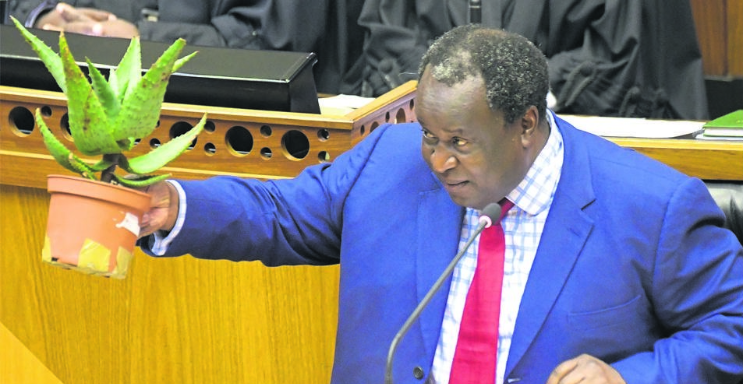
- Taxpayers have to prepare for nasty surprises in next week’s Budget – which could include a once-off tax levy on personal income, and a VAT hike, Old Mutual’s economist warns.
- Government’s debt burden is spiralling out of control, and it now has to spend R200 billion a year just on the interest of its loans.
- To boost the state coffers, above-inflation sin tax hikes are expected, as well as a hike in fuel taxes, Momentum says.
An extra tax on income for individuals and companies – as well as another VAT hike – is on the cards in next week’s national Budget, according to Old Mutual Investment Group’s chief economist Johann Els.
Finance minister Tito Mboweni will deliver his Budget speech on Wednesday.
Government finances are in such bad shape that Els expects extra income tax for individuals and companies, similar to the once-off “transition levy”, which taxpayers had to pay in 1995.
To finance the cost of the elections and the “transitional process to democracy”, South Africans had to pay an extra 5% of taxable income in excess of R50 000.
A VAT increase may also not be ruled out, Els added.
Absa earlier predicted that VAT will be increased to 16% in the Budget next week. VAT was hiked to 15% in February 2018.
Following years of bailing out state-owned entities and looting, government is battling a debt burden that is spiralling out of control.
“We pay more than R200 billion a year on interest payments alone – which is more than the annual budgets of health, education and police services,” says Els.
Over the past few years, South African taxpayers have been hit by higher taxes to help fund the debt burden. But government’s tax income has continued to languish as corporate profits shrivel amid five consecutive years of less than 1% average GDP growth.
Momentum Investments economist Sanisha Packirisamy expects above-inflation increases for duties on alcohol and tobacco products, and a hike in the fuel levy.
“Given the delay in the transition to a Road Accident Benefit Scheme, an additional hike in the [Road Accident Fund levy] is likely,” she says. Government wants to replace the bankrupt Road Accident Fund with the new scheme, which will directly pay out claims to victims and medical service providers.
But Packirisamy is less convinced that VAT will be hiked.
Even though South Africa’s VAT rate is comparatively low on a global scale, an increase now would come at a time when growth in household spending has fallen below 1%, compared to 2.8% when the VAT rate was increased in April 2018.
Packirisamy also sees a “medium” likelihood that personal income tax will be increased.
“An increase in personal income tax, SA’s largest source of revenue, would be difficult to implement in light of persistent consumer headwinds, including higher electricity tariffs, higher fuel prices, slower growth in nominal wages and rising unemployment.”
And there is little chance of a hike in company taxes, in her view.
“SA’s relatively high corporate income tax rate (28% in SA compared to a global average of 24.2%) and government’s desire to draw foreign direct investment towards the country suggest little scope to raise corporate income rates further.”
